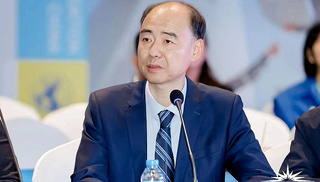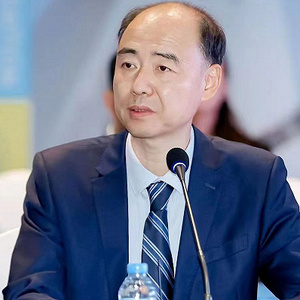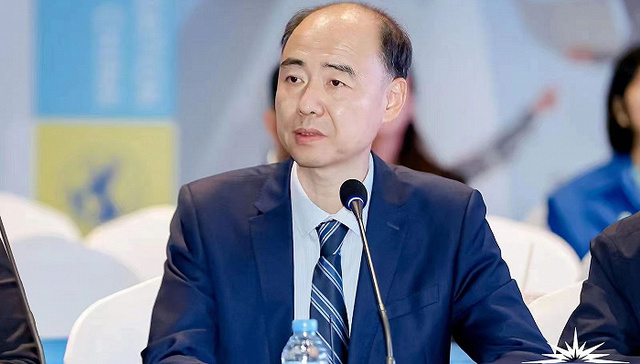By WANG Qing, ZHOU Sulei
On December 13, the 28th Conference of the Parties to the United Nations Framework Convention on Climate Change (COP28) concluded in Dubai, capital of the United Arab Emirates, half a day later than anticipated. After intense discussions and negotiations, the conference finally approved an agreement, to "transition" away from fossil-fuel use.
The "UAE consensus," calls on countries to "accelerate action in the crucial decade and phase out fossil fuels in the transition of the energy system in a just, orderly, and fair manner, aiming to achieve net-zero emissions consistent with science by 2050."
The conference also reached a consensus on increasing renewable energy, accelerating research and development of carbon capture and storage and advancing the Losses and Damages fund.
As the conference concluded, Jiemian News interviewed MA Jun, Director of the Institute of Public and Environmental Affairs (IPE). Ma was involved in the conference as an expert in various international discussions and through two reports related to China. He acknowledged China’s increasingly important role in climate action.

Jiemian News: Please, tell us what you were up to during this year's conference.
Ma Jun: Before the conference, we wrote a report: Pragmatic Actions by China to Address Climate Change with IPE and the China Academy of Environmental Sciences and Friends of Nature. At the conference, we released a “photovoltaic map” with over 50,000 power stations around the world, allowing people to follow the development of the industry.
I’m on the Global Climate Governance Committee and sat in on two main events—one on how to accelerate the photovoltaic industry to meet sustainable development goals, and another on global climate governance.
Jiemian News: What was your overall impression of this year's meet-up?
Ma Jun: This was my first since the pandemic and I found it very rewarding. This conference has drawn attention to China’s concrete action. Around 100,000 people attended. Last year, there were fewer than 100 Chinese attendees, but this year there were well over one thousand
China's presence was lively, and more about practical action rather than speeches.
Jiemian News: Tell us about the UAE Consensus and what it might mean.
Ma Jun: The UAE Consensus emphasizes the urgency of transition away from fossil energy, which has supported production and life since the Industrial Revolution. It’s the core issue of climate change and challenging to reach a consensus. Some countries rely almost entirely on the production and sale of fossil fuels. Some small island nations are on the brink. Reaching an agreement was hard, but another step forward in the global effort to address climate change.
Jiemian News: Every year there are calls to end fossil fuels at the climate conference. But nothing ever happens. What’s changed this year?
Ma Jun: Before the conference, China and the US reached an agreement on reductions of coal, oil, and natural gas and cutting emissions of greenhouse gases like methane. These agreements laid the foundation for wider consensus reached at COP28, essentially a progression of the agreement reached between China and the US.
The most significant contribution is the speed of development in renewable energy. In June of this year, China's non-fossil energy capacity in wind, solar and hydropower exceeded coal-fired power for the first time. China's installed photovoltaic capacity was nearly 400 million kilowatts and is growing fast.
China leads production and research in renewable energy. About 80 percent of the world's photovoltaic components, 60 percent of power batteries, and 50 percent of wind power equipment are made in China. Wind and solar energy costs have decreased by about 90 percent.
Jiemian News: Regarding alternatives to fossil fuels, nuclear energy was widely discussed. How did that go down with delegates?
Ma Jun: There were indeed many discussions and some consensus was reached. European countries have different views: Germany strongly opposes it, while France embraces it. Nuclear energy has the advantage of acting as a stabilizer like coal-fired power, providing a stable source.
Jiemian News: What are the highlights of China's projects at this year's climate conference?
Ma Jun: Chinese Vice Premier DING Xuexiang, Special Envoy XIE Zhenhua, and Minister LIU Zhenmin, the former Deputy Minister of the Chinese Ministry of Foreign Affairs, have delivered speeches on various occasions, elucidating China's stance. This includes the emphasis on unity to promote renewable energy, translating words into action, and ensuring implementation.
The conference's theme revolves around three words: Unite, Act, and Delivery. To a large extent, this aligns with the direction China has been striving to promote in recent years.
Before the conference, the Institute of Public and Environmental Affairs (IPE) presented a report: Pragmatic Actions by China in Responding to Climate Change. This report includes China's action, covering top-level design, a 1+N policy framework, efforts to promote energy transition, industrial energy efficiency, and carbon reduction.
The response to this release has been positive, encompassing newly presented statistical figures and an overview of China's actions. I believe that various stakeholders, upon reviewing this information, will develop a new understanding, recognizing that China has essentially embarked on a low-carbon development path.





